The female Nobel Peace Prize winners you need to know all about
Consider this your handy crib sheet on all the amazing women who have ever won the Nobel Peace Prize (and there's only been 15 of them).

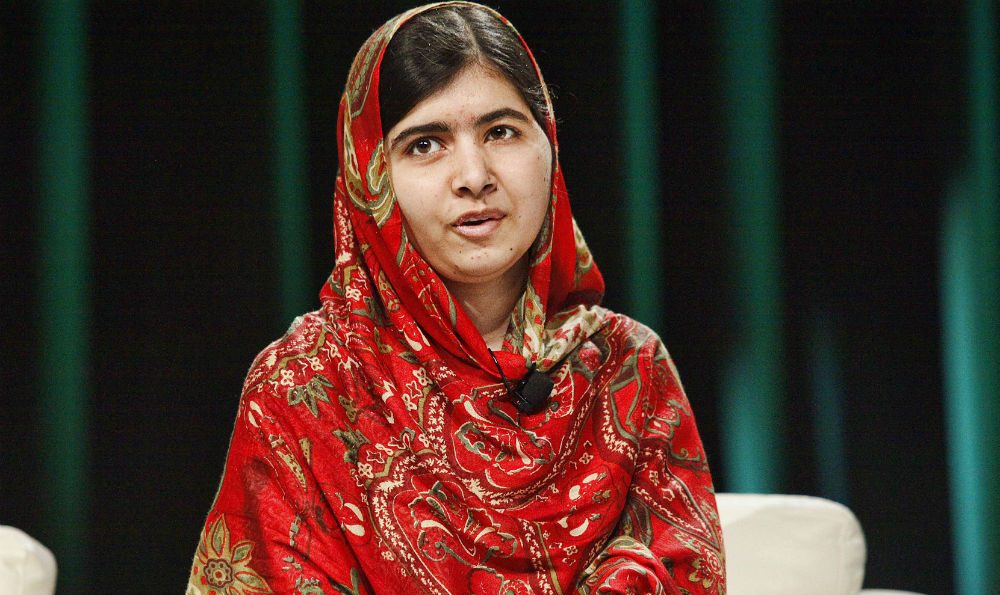
Consider this your handy guide to the only women to ever win the Nobel Peace Prize
The Nobel Peace Prize was created by Swede Alfred Nobel who, ironically, was himself an arms manufacturer and the inventor of dynamite, among many other things. But since it first began 116 years ago, there have only been 16 female Nobel Peace Prize winners.
From political activists to environmental champions and campaigners for female education, each one of these women is something to celebrate and they've contributed to some of the most empowering quotes from women of all time.
Here's what you need to know about some of the most inspirational women from history and their many achievements as female Nobel Peace Prize winners.
Bertha von Suttner, 1905
Following its invention, it took four years for a woman to finally claim a Nobel Peace Prize; a friend of Alfred Nobel himself, Bertha von Suttner was the first female laureate. In fact, she was only the second ever woman to win any Nobel Prize.
She's probably best known for writing influential anti-war novel Lay Down Your Arms in 1889.
Jane Addams, 1931
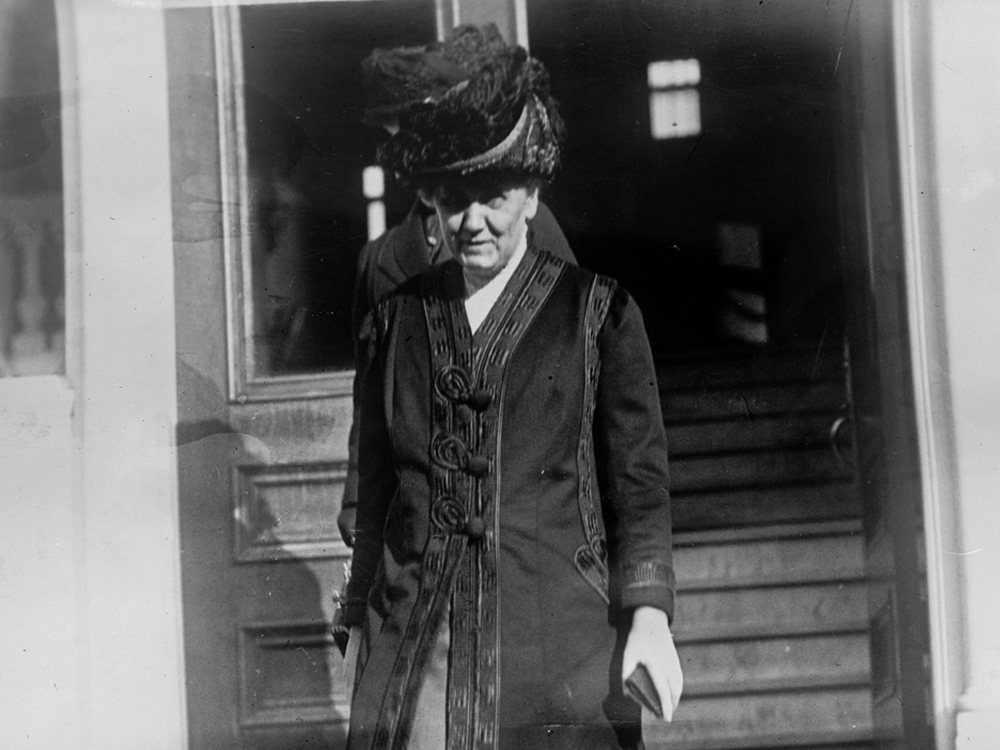
In 1919, American Social Worker Jane Addams founded the Women's International League for Peace and Freedom, and campaigned on behalf of the poor and immigrants, as well as against the use of industrial child labour.
Celebrity news, beauty, fashion advice, and fascinating features, delivered straight to your inbox!
She was famously described as a 'threat to national security' for her loud opposition of the United States entering WW1.
Emily Greene Balch, 1946
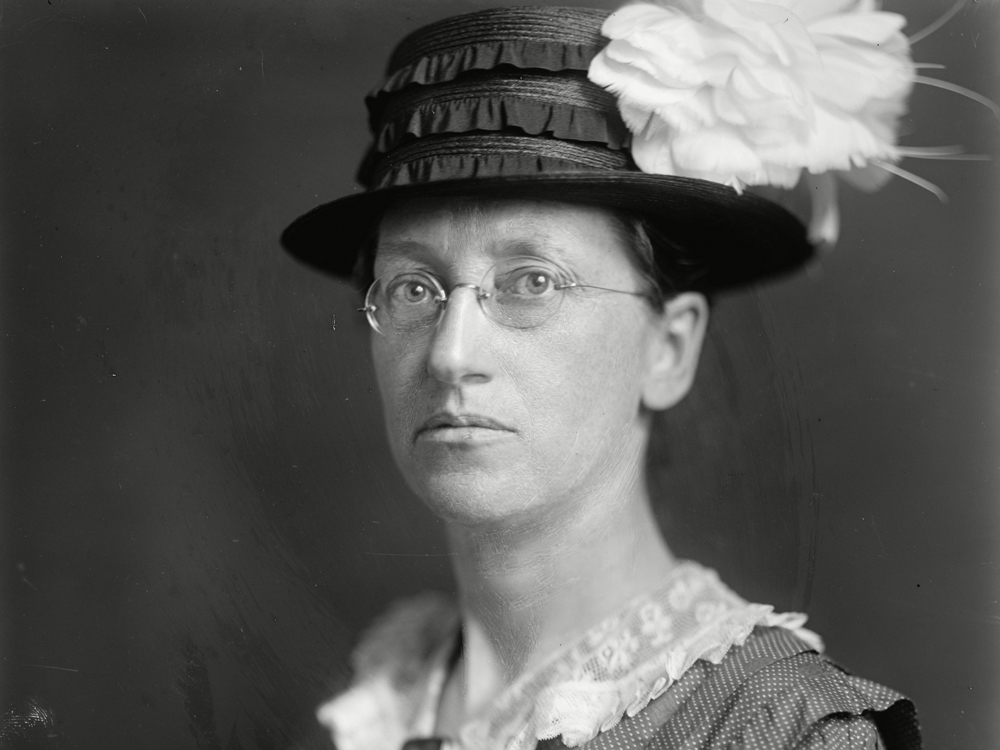
American economist and sociologist Emily Greene Balch was the third woman to claim a Nobel Peace Prize.
Along with Jane Addams, she was labelled a dangerous dissident for her efforts to prevent war; she openly criticised western democracies for not attempting to stop Hitler and Mussolini.
Betty Williams and Mairead Corrigan, 1976
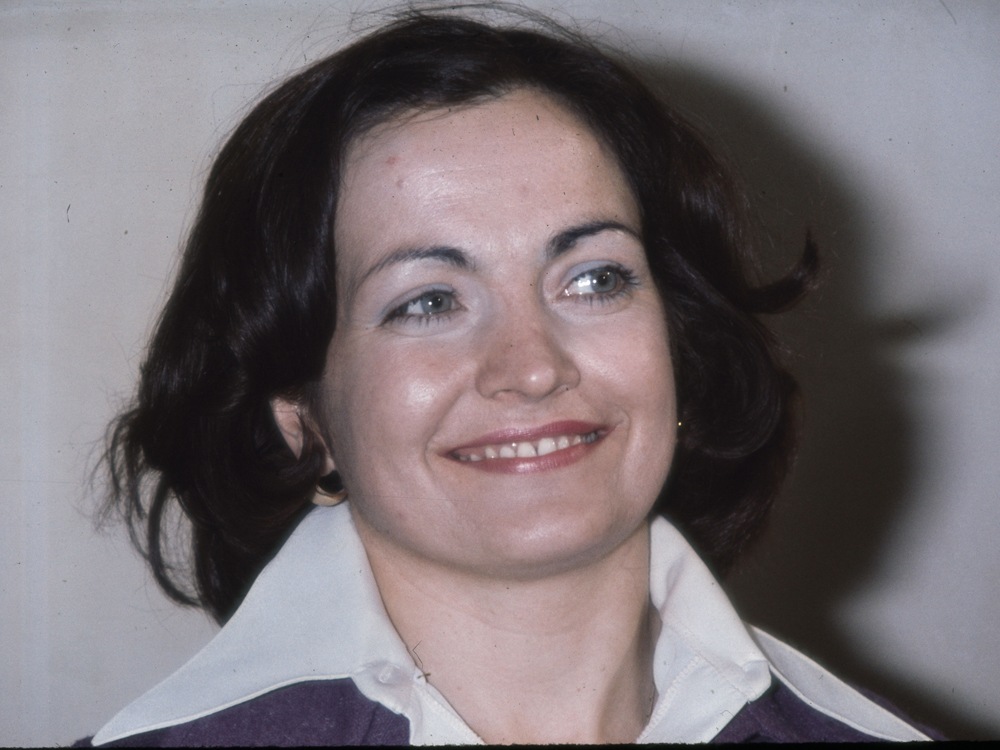
In 1976, Betty Williams witnessed the death of three children who were mown down by a car driven by IRA fugitive Danny Lennon, after he was fatally shot by British troops and the vehicle careered onto the pavement. She had been driving with her own children in the car when she heard the sound of gunfire.
The horrific incident had such an impact on Williams that she started a petition for peace, gaining 6,000 signatures, and later co-founded the Women for Peace with Ciaran McKeowan.
She later approached the children's aunt, Mairead Corrigan (pictured above), who joined the movement. Later renamed The Community for Peace People, their aim was to bring an end to the bitter conflict in Northern Ireland and was the main reason they became female Nobel Peace Prize winners.
Mother Teresa, 1979
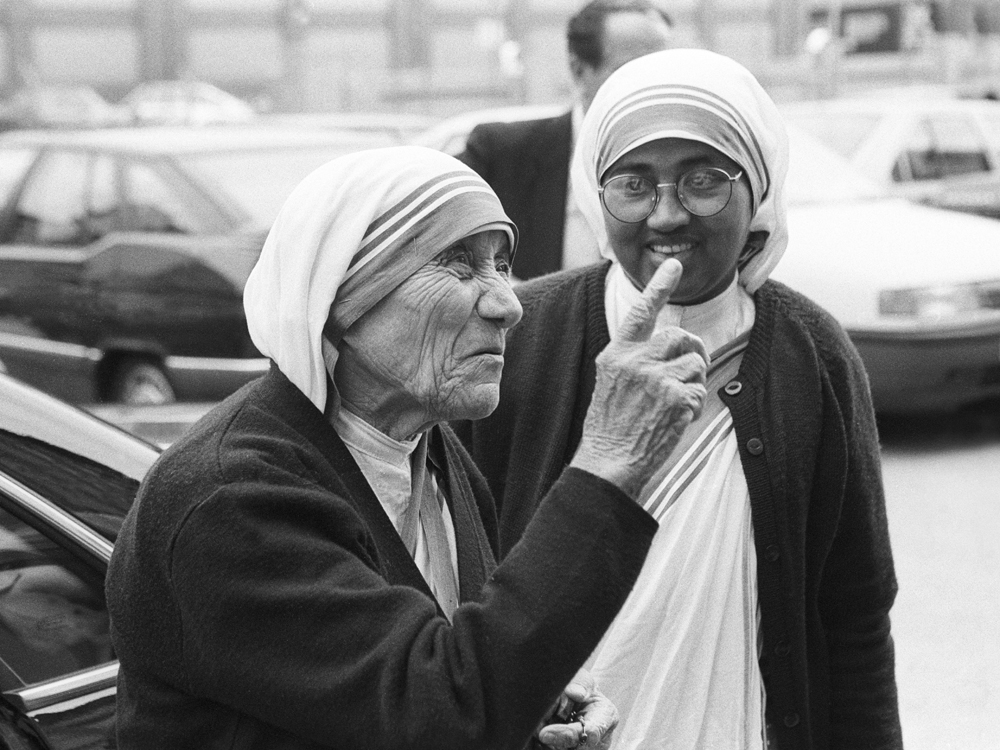
Mother Theresa is probably one of the most famous female Nobel Peace Prize winners was just 12 when she heard a call from God, demanding that she devote her life to him. She entered a nunnery in Albania and was sent to India to be a teacher, with the new name Teresa.
She later received a second message from God – to help the poor while living among them, and famously founded a new sisterhood, Missionaries of Charity, which helped build homes for orphans, nursing homes for lepers and hospices for the terminally ill in Calcutta.
Alva Myrdal, 1982
Sociologist and politician Alva Myrdal campaigned in her native Sweden on behalf of the working classes, fighting in particular for women's rights.
She later became a government minister in charge of disarmament issues, working to persuade the superpowers to disarm during the nuclear race. She died just four years after receiving the Nobel Peace Prize, the day after her 84th birthday.
Aung San Suu Kyi, 1991
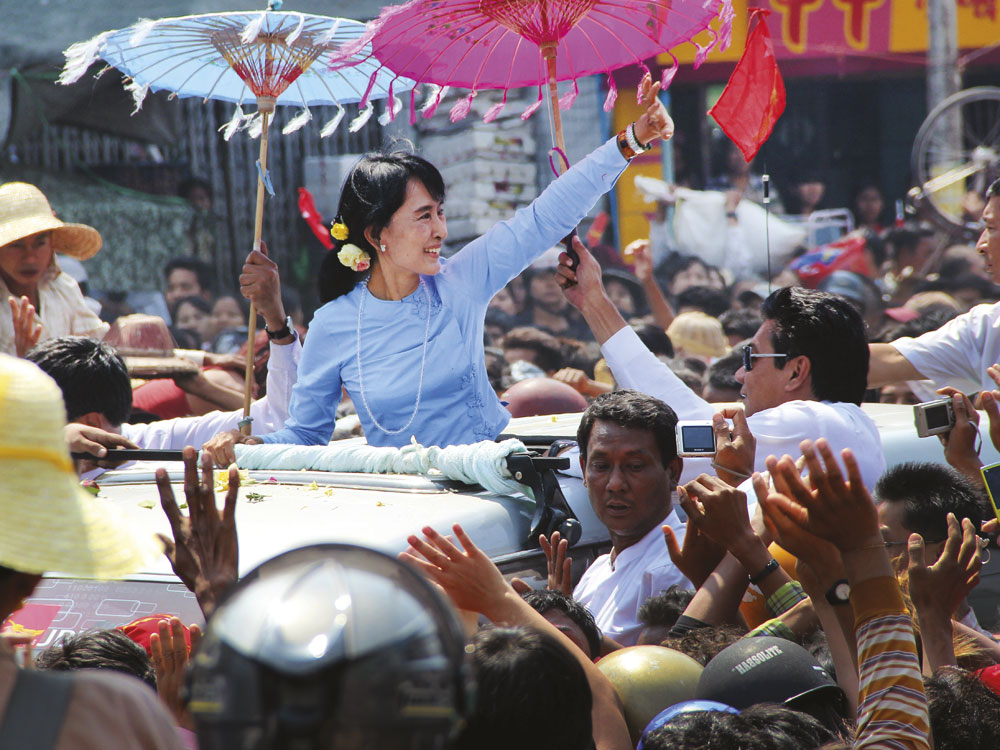
Aung San Suu Kyi was the leader of the opposition to the military junta in Burma (now known as Myanmar).
She spent most of 1989 to 2010 under house arrest because of her democratic efforts against the leader.
Rigoberta Menchú Tum, 1992
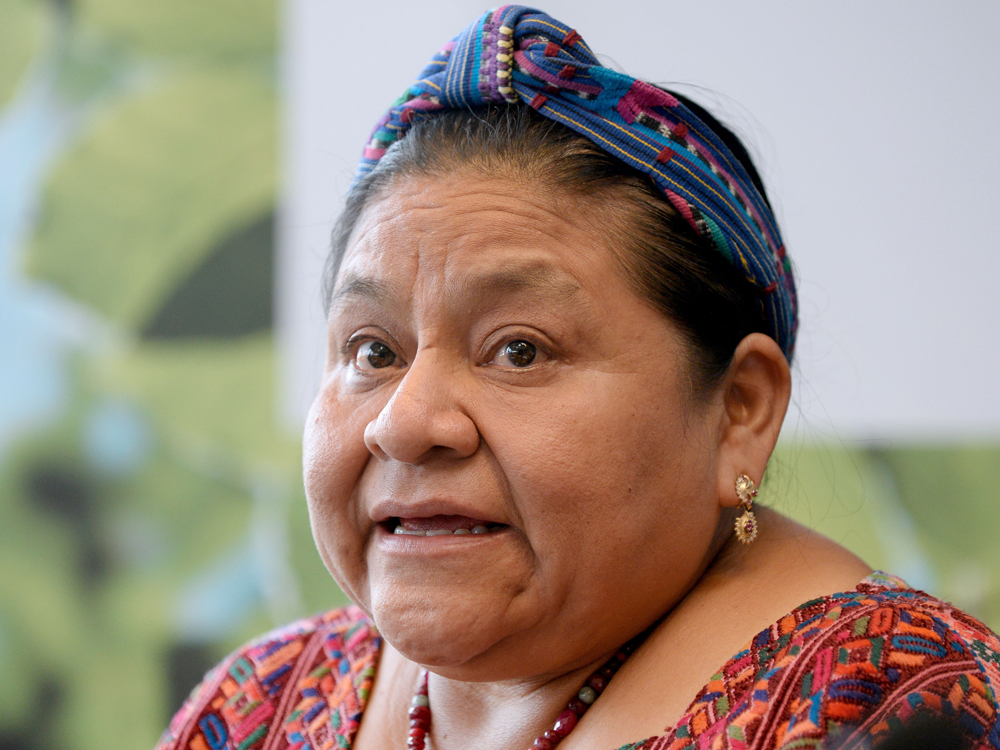
Guatemalan political activist Rigoberta Menchu Tum fought for the rights of indigenous people in Latin America, both during and following the Guatemalan Civil War. She later became a UN Ambassador for the world's indigenous peoples, and has received several other international awards in recognition of her work.
Jody Williams, 1997
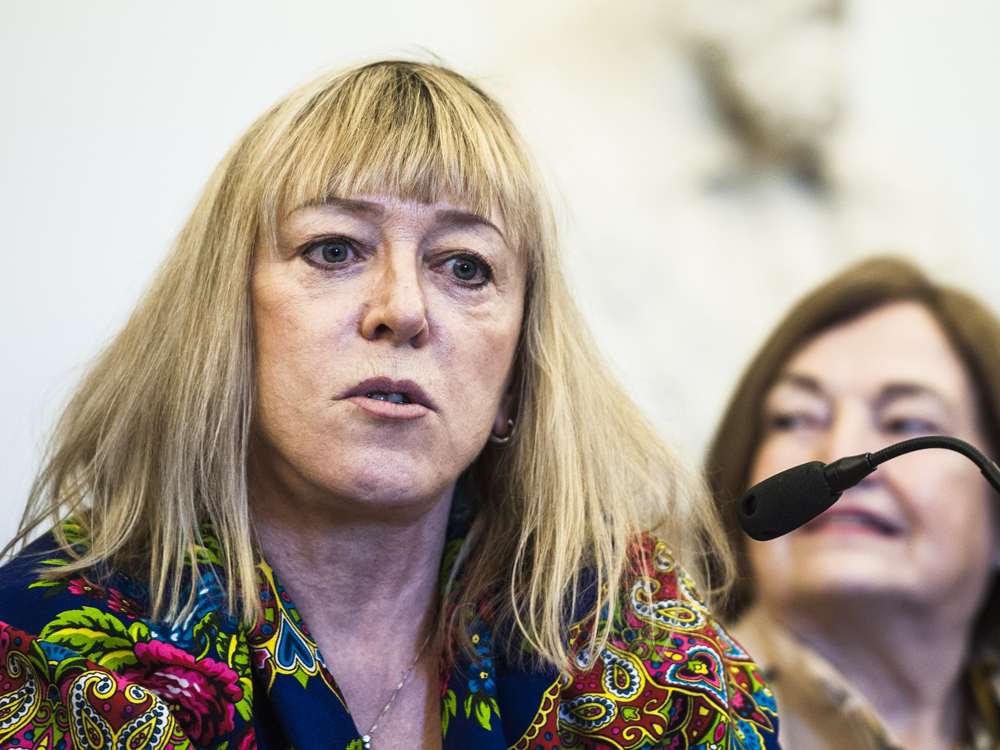
Williams became involved in aid work in war-torn El Salvador in the 1980s. She worked providing artificial limbs for children who had been injured because of landmines, and later became a driving force in the launch of the International Campaign to Ban Landmines (ICBL).
This drove The Ottawa Convention, signed by 120 states in 1999, banning the use, production, sale and stock-piling of anti-personnel mines, and also containing provisions for mine clearance and the obligation to give humanitarian aid.
Shirin Ebadi, 2003
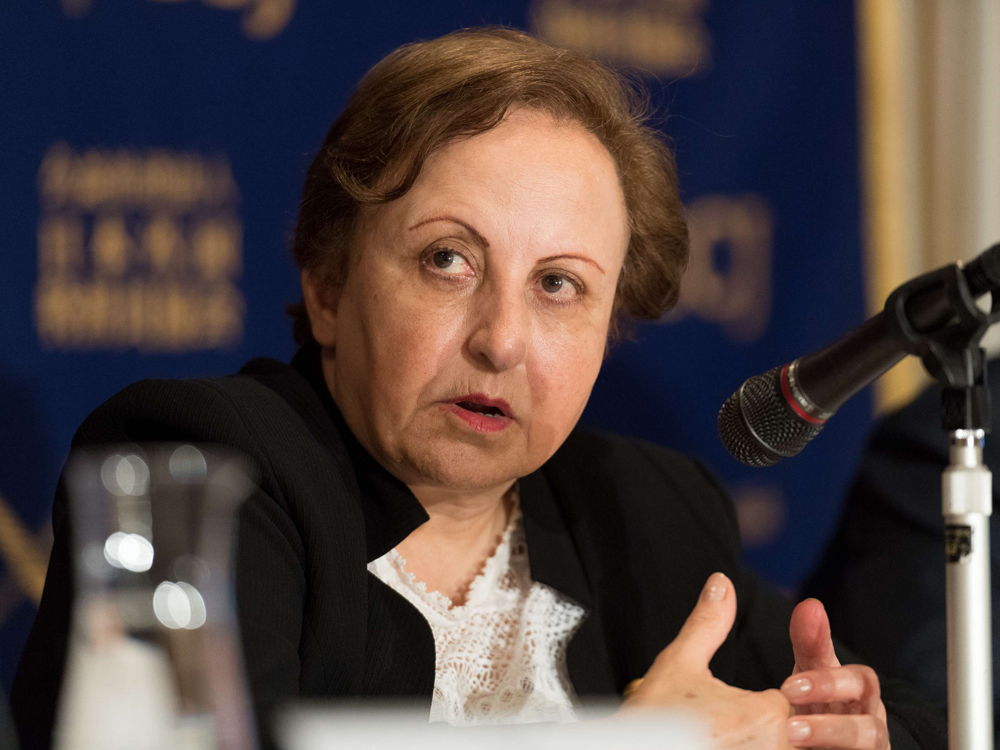
Iran's first female judge, Ebadi was dismissed from her position after the 1979 revolution. She then went on to open a legal practice and began defending people who were being persecuted by the authorities, but was imprisoned in 2000 for criticising the country's hierocracy.
Struggled for fundamental human rights - especially for women and children and helped establish organisations to further these issues, while also writing books on Iran's succession and divorce laws and advocating the separation of religion and state in Iran.
Wangari Maathai, 2004
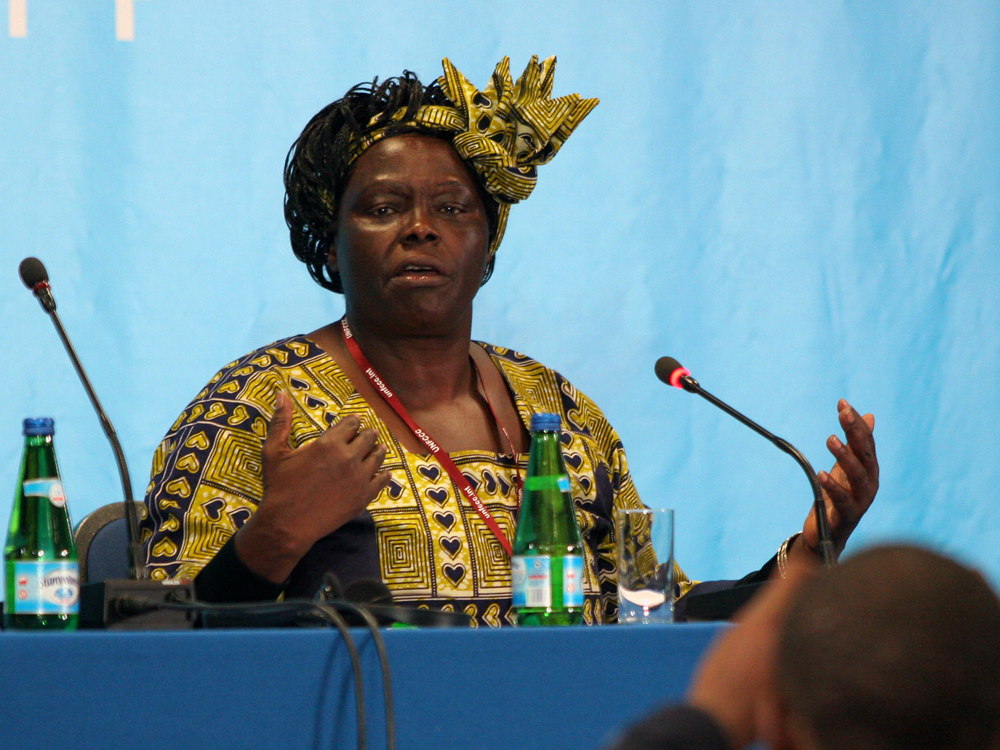
Environmental activist Maathai founded environmental conservation organisation the Green Belt Movement in 1977.
This grassroots movement encouraged women to plant trees to work towards ending deforestation in Kenya. It led to the planting of over 30 million trees in Africa.
Ellen Johnson Sinleaf and Leymah Gbowee, 2011
Female Nobel Peace Prize winners Johnson Sinleaf and Gbowee were recognised 'for their non-violent struggle for the safety of women and for women’s rights to full participation in peace-building work.
Their women's peace movement helped bring an end to the Second Liberian Civil War in 2003. Ellen Johnson Sincleaf is the current President of Liberia and the first female African head of state.
Tawakkol Karman, 2011
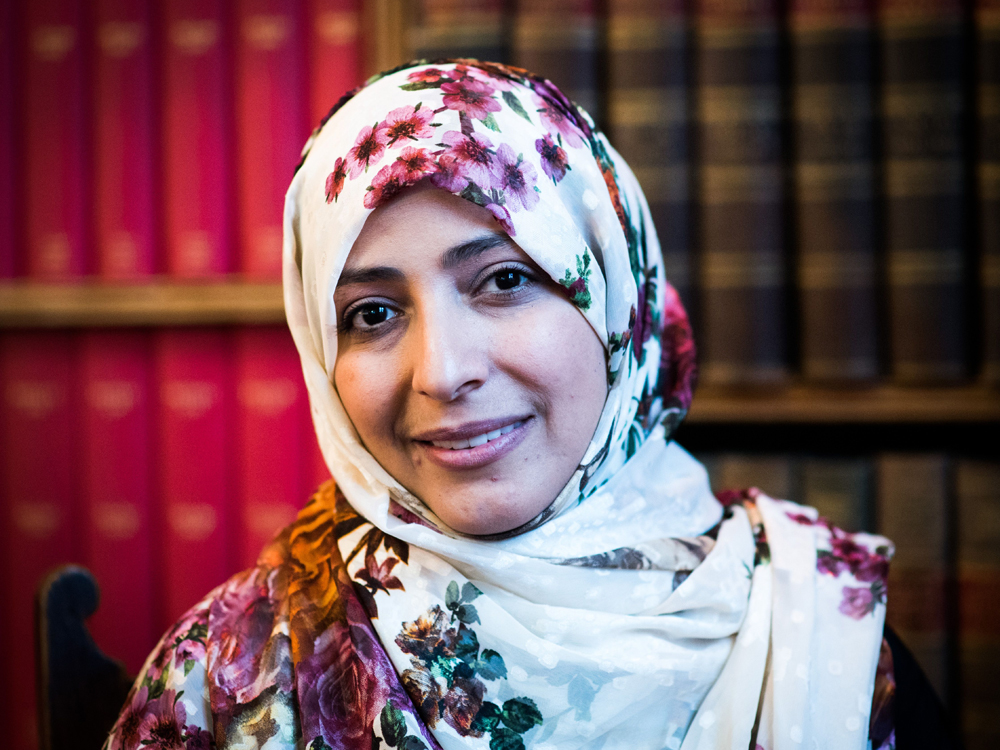
Yemeni journalist, politician, senior member of the of Al-Islah political party and human rights activist, Karman co-founded (and now leads) the group Women Journalists Without Chains.
She became the international, public face of the Yemeni uprising that was part of the 2011 Arab Spring, and is known as the "Mother of the Revolution" by Yemenis.
Malala Yousafzai, 2014
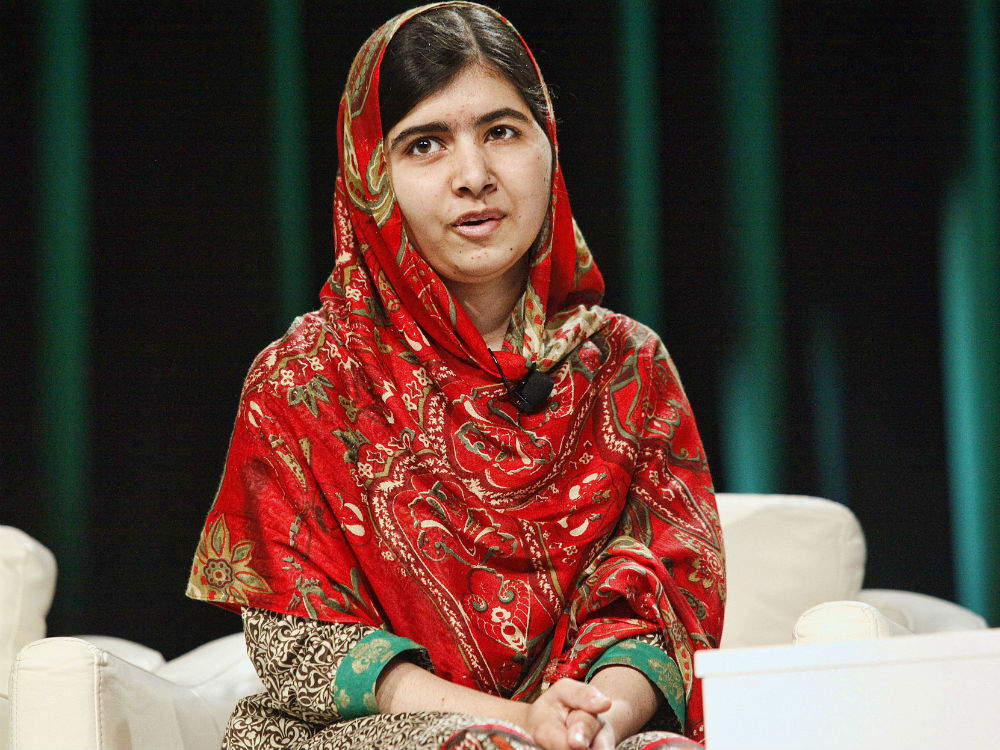
Not only is she the most recent of the female Nobel Peace Prize winners, but Malala Yousafzai is the youngest ever recipient of the award; she was just 17 years old at the time.
Yousafzai first made headlines after she was shot in the head by the Taliban for campaigning for girls education. After making a full recovery, she went on to give a UN address for her 16th birthday.
And you can bet your life she's going to take over the world; Malala recently announced her place at Oxford University had been confirmed.
Safe to say that all of these women are heroes.
Here's to many more being awarded the Peace Prize in future.
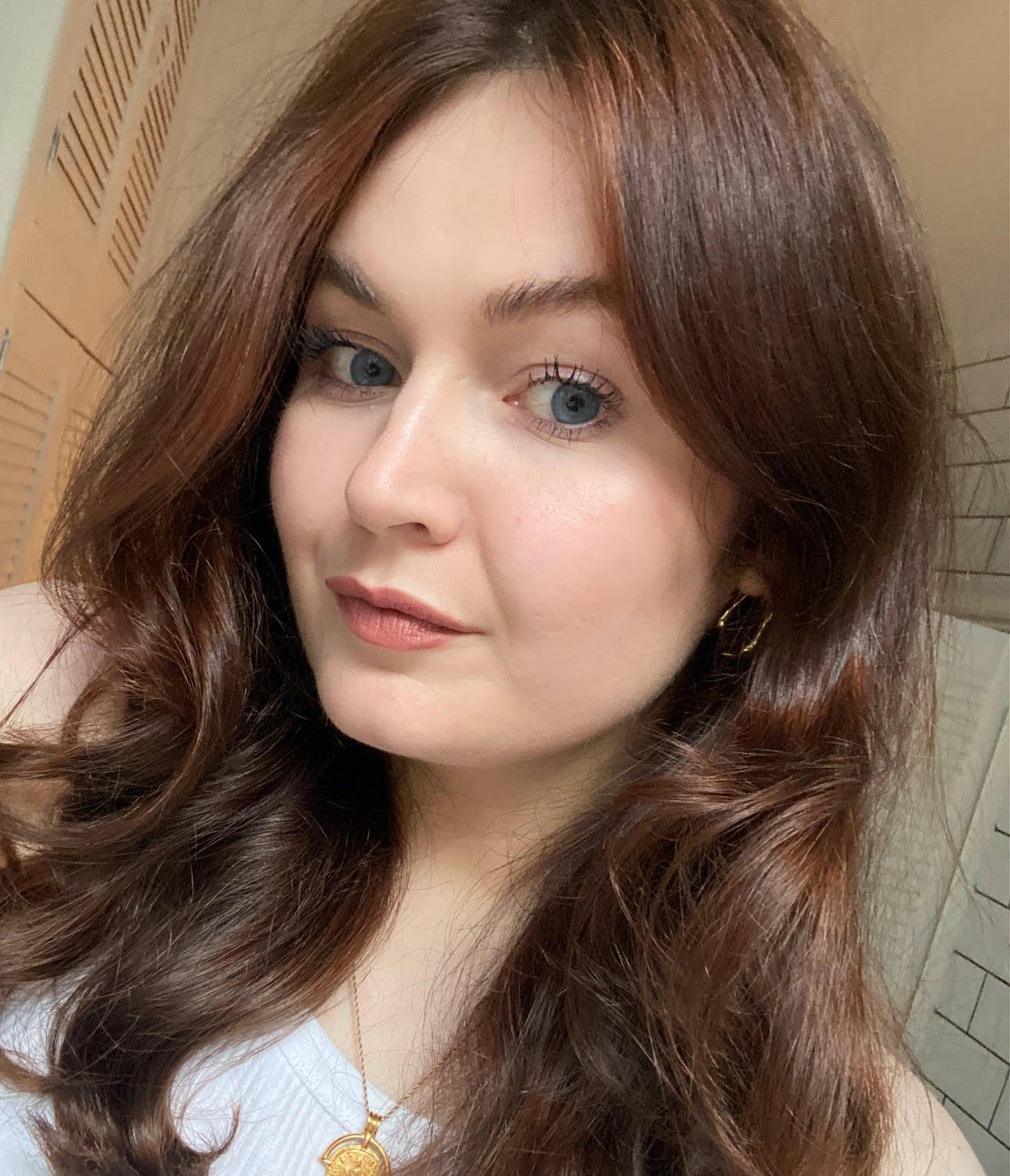
Lucy is a freelance beauty editor and contributor at Marie Claire, and has also written for titles including Cosmopolitan, Refinery29, Glamour and woman&home. She was previously Marie Claire’s junior beauty editor. During her career, she’s covered everything from backstage beauty at fashion week to interviews with famous faces like Drag Race royalty and Little Mix. As for her beauty ethos, she’s a big advocate for not having to spend a fortune on beauty products to get good results. When she’s not got beauty on the brain you’ll probably find her reading or Netflix-ing.